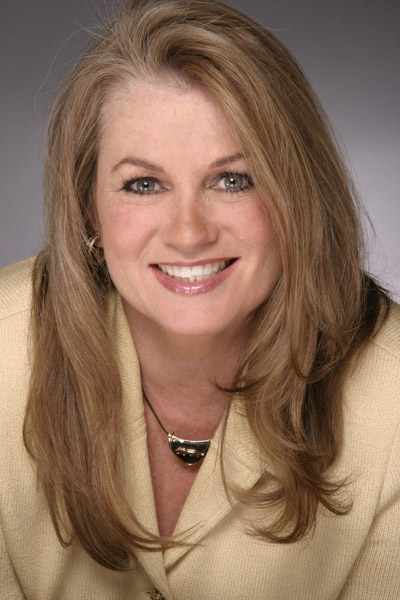Would you Hire Your Son/Daughter?
Finding the right candidate…
As family businesses grow, they need to think about the next generation and whether any of the children, nieces and nephews etc. are the right fit for taking the company into the next stage of growth. All too often, we see entrepreneurs with blind spots for their children believing they are their heir-apparent without any objectivity.
The entrepreneur may believe their children would be a natural to take over what they built and just assume they will run the company. However, viewing your progeny as you would a stranger applying for a job can serve you well. The failure rate from generation to generation is staggering as only 30% of second-generation companies survive and just 12% of third generation make it while the fourth generation declines to just 1% survival rates.
According to PWC research, the lack of preparedness for the next gen to take over accounts for 25% of the reason for failure. Our children may have some of our skill sets but not all. They may lack the “fire in their belly” to push through hard times and strategically plan for success. What they learned in business school may prove helpful to the business but there’s no substitute for experience.
Dropping them in the ocean…
Some of the most successful family businesses we have seen flourish have policies for the next generation. Very often, the children must work outside the family business for a certain period of time. This can be with a competitor, someone in the larger industry around the businesses’ products or services or in a completely different type of line of business to gain wider experience.
The very process of interviewing for a job, reporting to their supervisors, being graded on performance without the benefit of the family name can prove so very valuable. Your son or daughter must rely on their own skill sets, develop their expertise and truly find out what interests them.
Another issue we encounter is that the patriarch or matriarch often believes they are giving the kids a “gift” by letting them take over the business. However, the children may not have an interest but do not know how to tell their parents that fact. By surviving and hopefully flourishing in a job outside of the family, they can develop their own sense of self, know what their passions are and be judged solely on their merits and performance. With this success, they can view the family business more objectively and decide if the role is right for their future.
Ideally, the business should have a set of governing policies. These should be written down and followed by all family members. This policy can dictate when children can gain entry to the business, what roles they should fulfill to gain experience, at what age they can vote and how voting takes place overall as to board seats, term limits and more.
By having these policies firmly in place, they create a roadmap for all members of the next generation. This can be especially helpful if the next generation involves multiple family units. As families grow, the generations can add significant headcount and voting may be uneven within family units as some units have no children or perhaps just one while others may have four or more. Installing measures so that one family unit cannot unfairly unseat other family members is ideal.
Give them some rope…
Once the children have proved themselves in an outside role, they should be given some room and a budget for their own policies and creativity. This is another area where governance can help, especially if the next generation is throwing out the “baby with the bathwater” as they toss policies and procedures which worked for many years.
The next generation needs to be groomed for success and a larger role. An ideal way to do this is to give your son or daughter some authority and a budget to try new and different strategies. Governance again can provide both the metrics for accountability as well as standards for limiting the risk factor.
Something else we encounter over and over again is the patriarch or matriarch ruling with an iron fist. They remain in their role as they love what they do. This can set up the next generation for failure as they take over, implement changes which are critical failures and derail the company’s hard-won success.
We have encountered more than one 77-year-old CEO, whose 40+ children have no authority to make decisions. Dad ultimately controls all members of the family, those in and out of the business. There is no room for the kids in the business to implement new strategies to help the company reach higher heights.
One especially sad case was the second-generation CEO who passed away at 89 and left his 62 year old son to run the company. The son promptly made three major mistakes in a short period of time and took the company’s sales down by 80%. A 110-year old esteemed brand was ruined and not saleable. The son is now 76 and wants to sell but is not profitable enough and has lost the cache the brand had for so many years to attract buyers.
Try to treat your children with objectivity. An outside advisor can help in vetting out children, designing roles that make sense and can allow the children to grow in to the appropriate role. Creating governance is another role an outside advisor can assist the family in creating. An Advisory Board can be another asset to add to the company’s oversight.
About Chapin Hill Advisors, Inc.
 Kathy Boyle founded Chapin Hill Advisors in 2000 after spending her early career working in large and small investment firms on Wall Street. Chapin Hill Advisors works with privately-held businesses, often family-owned, to help them execute financial, estate and succession planning. We work with the business owner to be sure their business will provide their family with the financial security needed , identify areas of risk and help create strategies to mitigate risk.
Kathy Boyle founded Chapin Hill Advisors in 2000 after spending her early career working in large and small investment firms on Wall Street. Chapin Hill Advisors works with privately-held businesses, often family-owned, to help them execute financial, estate and succession planning. We work with the business owner to be sure their business will provide their family with the financial security needed , identify areas of risk and help create strategies to mitigate risk.
Businesses often need assistance creating strategies to allow the business to succeed the owner as well as address structure, systems and procedures. As a business grows, the owner needs to have a plan in place to allow succession, whether an outright sale or a transition to family, partners or employees.
We work with businesses of all sizes to assist them in creating strategies to increase revenue and profitability and tie the future growth to the owner’s or families’ personal financial goals. With larger businesses, we offer a resource directory of trusted professionals. Small businesses or solo-entrepreneurs can benefit from Chapin Hill’s combination business and personal planning strategies.
As a fellow entrepreneur, Kathy speaks from experience. She has tested many strategies in the trenches and seen her clients make mistakes as well as successes. Kathy helps entrepreneurs implement strategies for future success and helps to coach them to execute action steps.
She has advised business clients of all types and sizes on structuring sales of their businesses as well. Without a long term plan and a team who can replace the founder’s talents, a business is less likely to be purchased. Kathy’s background on Wall Street and in financial planning allows Chapin Hill to implement strong financial controls and combine both estate planning as well as business planning for future success.
For more information or a complimentary meeting, feel free to contact Kathy Boyle at: kboyle@chapinhill.com or 212-583-1992.





Leave A Comment